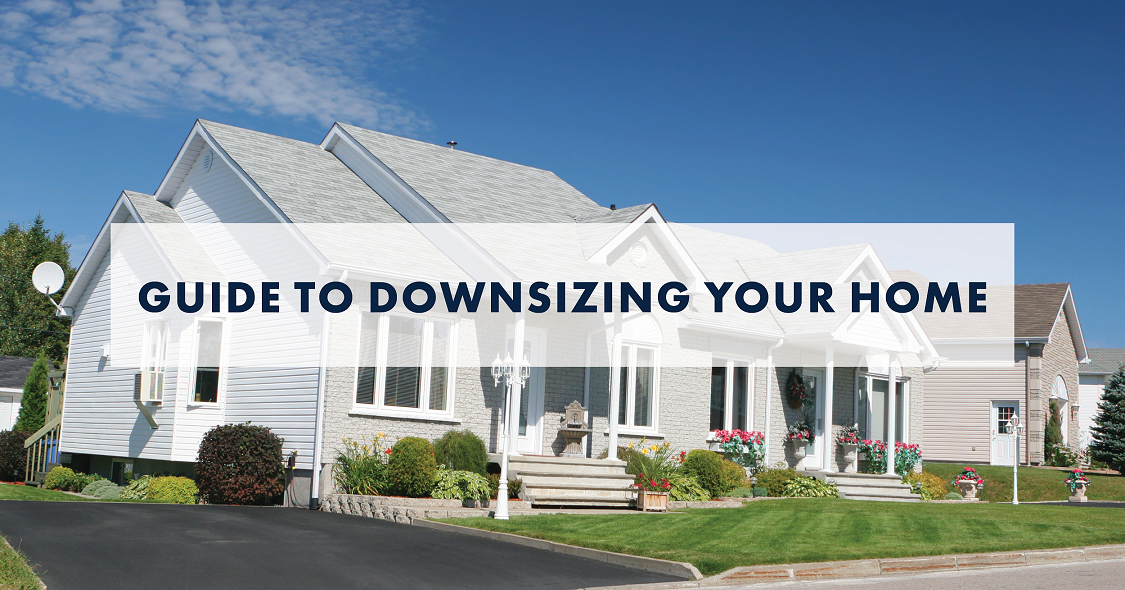
By Alena Kairys
May 28, 2022Many people dream of having a great, spacious home, but a bigger house isn’t always better. In fact, having a smaller home can be more practical and economical. If you’re ready to move into a cozier space, here’s our guide to downsizing your home.
Prioritize your Goals
Homeowners may downsize their homes for a variety of reasons, whether it’s to save money, have less upkeep, reduce debt, or improve accessibility. Your new home shouldn’t just have less square footage—it should help you achieve your new lifestyle goals. Knowing what features you do and don’t want in your next home will ensure you’re not wasting your time looking at properties that don’t meet your needs. Be sure to work with a reliable real estate agent early on to help find the right home for you.
Think Beyond Size
Downsizing is more than the size of the house itself—there are other elements you need to consider. For example, if you’re downsizing due to age and decreased mobility, look for a home little to no steps. If you anticipate aging in place, seek out homes with wider hallways and features that can easily be adapted for a wheelchair. Keep the lot size and its characteristics in mind, too. Yards that are large, very sloped, or surrounded with trees and shrubbery likely mean more yardwork for you. A condo or townhome can be better fit than a single-family home if you’re aiming to minimize maintenance tasks. You should also think about how important it is to you to be close to certain people and places.
Declutter Early
Getting rid of unnecessary items is always a good practice when preparing to move, and it’s even more essential if you’re moving to a smaller home. Space is a luxury in a smaller house, so you need to make some difficult decisions about what stays and what goes. You can sell, donate, give away, or recycle whatever you don’t need anymore. Photos and documents can be digitized, saving tons of physical space. If it seems overwhelming to declutter everything, try going through one room or targeting one category (i.e., clothes, furniture, books) at a time. Begin decluttering and purging as soon as possible, as it can often be time-consuming and will expediate the moving process once you find a new home. Allowing yourself three months to reduce your belongings is a good starting point, though you may need more than that depending on the size of your home and how many things you have. Letting go of your possessions is emotionally challenging, but it’s important to be honest with yourself and only keep items that make you happy and will fit with the lifestyle you want to build in your new home.
Budget
Saving money is one of the benefits of downsizing, as smaller properties tend to be less expensive and usually have lower utility bills. Still, smaller doesn’t always mean cheaper. Even if the listing price is lower than that of larger homes, you could be dealing with expensive HOA fees, condo fees, or higher property taxes if the home is in a desirable area. If you’re looking at a house that need upkeep, make sure you have the funds to pay for repairs (or look into a renovation loan). You need to be able to afford to live in the home, not just buy it. You can use a home affordability calculator to estimate your expenses. Work with your real estate agent and loan originator to find a home and loan program you can manage.
Downsizing your home doesn’t have to mean giving up comfort—you may be surprised at how much happier you are in a smaller setup. Although the process of shrinking your life can be challenging, living in a smaller home means you can focus on what matters to you.
If you have questions about the homebuying process, contact one of our licensed Mortgage Loan Originators. If you are ready to begin the home buying process, click here to get started!
These blogs are for informational purposes only. Make sure you understand the features associated with the loan program you choose, and that it meets your unique financial needs. Subject to Debt-to-Income and Underwriting requirements. This is not a credit decision or a commitment to lend. Eligibility is subject to completion of an application and verification of home ownership, occupancy, title, income, employment, credit, home value, collateral, and underwriting requirements. Not all programs are available in all areas. Offers may vary and are subject to change at any time without notice. Should you have any questions about the information provided, please contact us.